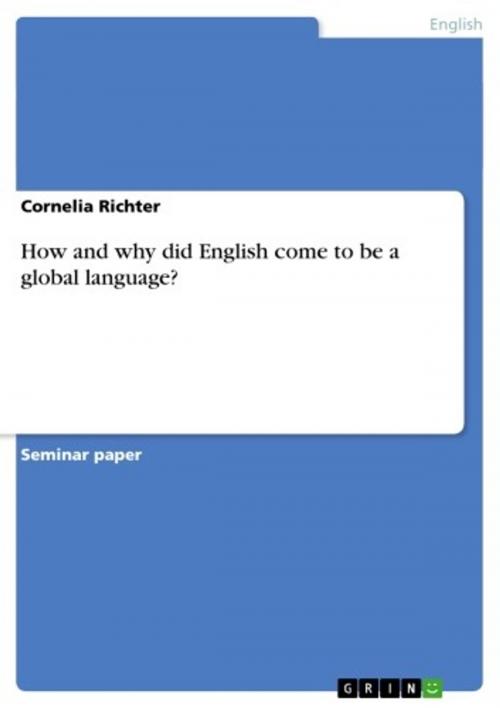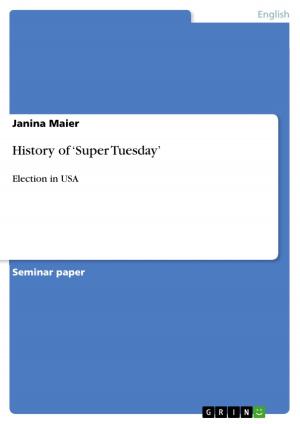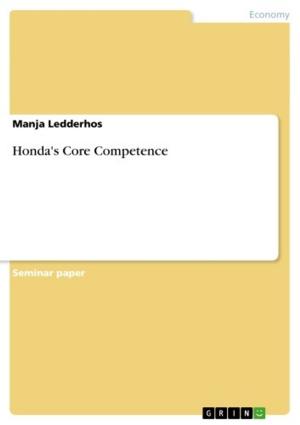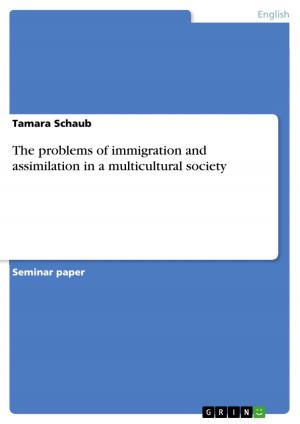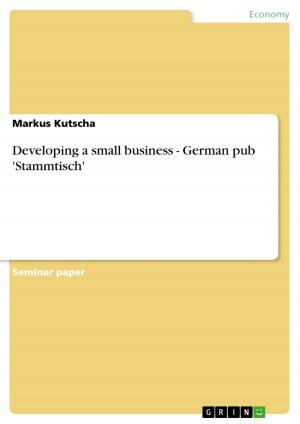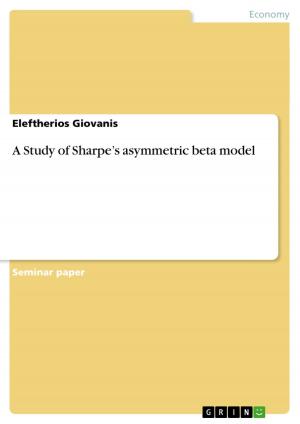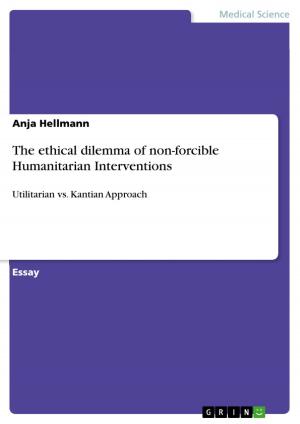How and why did English come to be a global language?
Nonfiction, Reference & Language, Study Aids, ESL, Foreign Languages| Author: | Cornelia Richter | ISBN: | 9783640151776 |
| Publisher: | GRIN Publishing | Publication: | September 2, 2008 |
| Imprint: | GRIN Publishing | Language: | English |
| Author: | Cornelia Richter |
| ISBN: | 9783640151776 |
| Publisher: | GRIN Publishing |
| Publication: | September 2, 2008 |
| Imprint: | GRIN Publishing |
| Language: | English |
Seminar paper from the year 2007 in the subject English Language and Literature Studies - Culture and Applied Geography, grade: 2,0, Martin Luther University (Institut für Anglistik und Amerikanistik), course: English Rules the World? The Globalisation of English, 14 entries in the bibliography, language: English, abstract: The role of the English language among all other languages is constantly examined, researched and written about. It appears that no other language has ever had such an amazing and massive impact on other cultures, languages and world history. Statements like 'English is today a truly global language' (Rubdy 2006: 5) and 'World English exists as a political and cultural reality' (Crystal 2003b: xii) underpin the notion of the possibility of a language that connects all people, a notion and perhaps also a wish that is almost as old as mankind. This paper will investigate the question of what defines a language as a global one and what factors are convincing or definite. David Crystal's explanation makes it quite obvious: 'A language achieves a genuinely global status when it develops a special role that is recognized in every country' (Crystal 2003b: 3). However, he himself admits that this is not precise enough; a 'special role' can mean many things. The concept usually refers to political aspects, like, for example, the status of the language of the state defined by law, or the language being the only one in some states for historical reasons (cf. Crystal 2003b: 66). But in all cases, it can be argued, the population is living in an environment in which the English language is routinely in evidence, publicly accessible in varying degrees, and part of the nation's recent or present identity (Crystal 2003b: 66). It also has to be clarified what processes can lead to a global status of a language, and if so-called 'naïve' theories hold true. For the purpose of examining this question further, the concept of the lingua franca and the role of English as such will also be looked at. Talking about English and its world influence, it is inevitable to consider the roles and history of Britain and the United States. In order to make the attempt of getting more precise, numbers of speakers will be shown and it will be explained how these numbers came about and what they mean. ... As obvious as it may seem, English is dominant is so many spheres that it appears impossible to account for all of them thoroughly. However, the most significant domains will be explained as such in order to draw a connection between history, present and future.
Seminar paper from the year 2007 in the subject English Language and Literature Studies - Culture and Applied Geography, grade: 2,0, Martin Luther University (Institut für Anglistik und Amerikanistik), course: English Rules the World? The Globalisation of English, 14 entries in the bibliography, language: English, abstract: The role of the English language among all other languages is constantly examined, researched and written about. It appears that no other language has ever had such an amazing and massive impact on other cultures, languages and world history. Statements like 'English is today a truly global language' (Rubdy 2006: 5) and 'World English exists as a political and cultural reality' (Crystal 2003b: xii) underpin the notion of the possibility of a language that connects all people, a notion and perhaps also a wish that is almost as old as mankind. This paper will investigate the question of what defines a language as a global one and what factors are convincing or definite. David Crystal's explanation makes it quite obvious: 'A language achieves a genuinely global status when it develops a special role that is recognized in every country' (Crystal 2003b: 3). However, he himself admits that this is not precise enough; a 'special role' can mean many things. The concept usually refers to political aspects, like, for example, the status of the language of the state defined by law, or the language being the only one in some states for historical reasons (cf. Crystal 2003b: 66). But in all cases, it can be argued, the population is living in an environment in which the English language is routinely in evidence, publicly accessible in varying degrees, and part of the nation's recent or present identity (Crystal 2003b: 66). It also has to be clarified what processes can lead to a global status of a language, and if so-called 'naïve' theories hold true. For the purpose of examining this question further, the concept of the lingua franca and the role of English as such will also be looked at. Talking about English and its world influence, it is inevitable to consider the roles and history of Britain and the United States. In order to make the attempt of getting more precise, numbers of speakers will be shown and it will be explained how these numbers came about and what they mean. ... As obvious as it may seem, English is dominant is so many spheres that it appears impossible to account for all of them thoroughly. However, the most significant domains will be explained as such in order to draw a connection between history, present and future.
